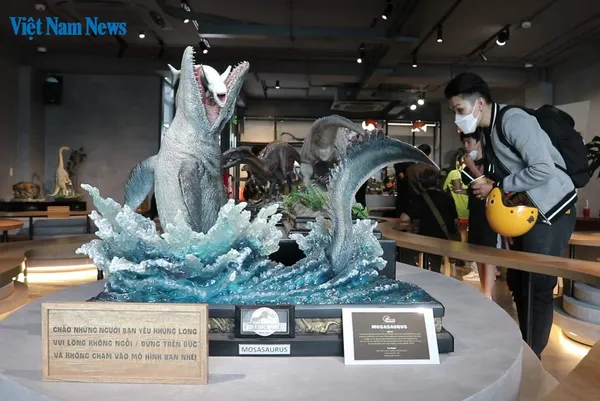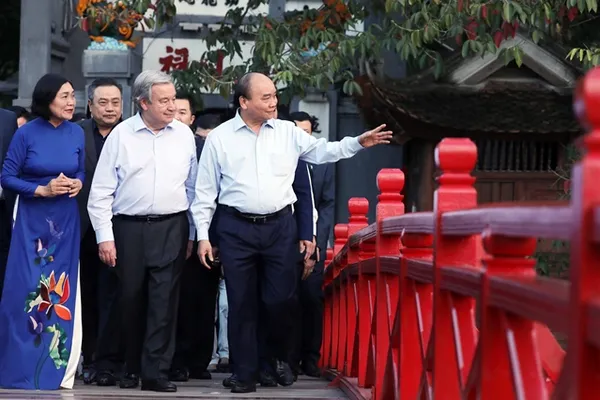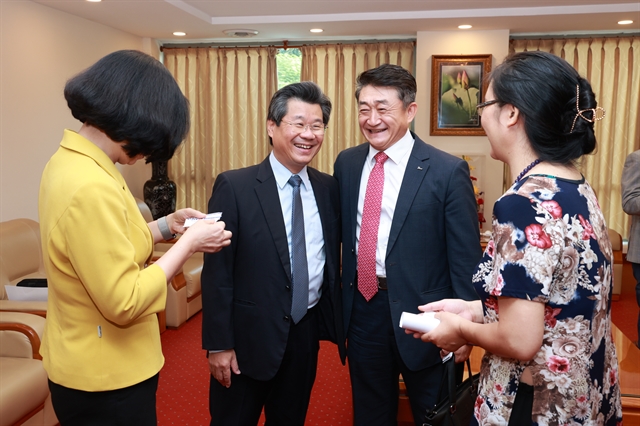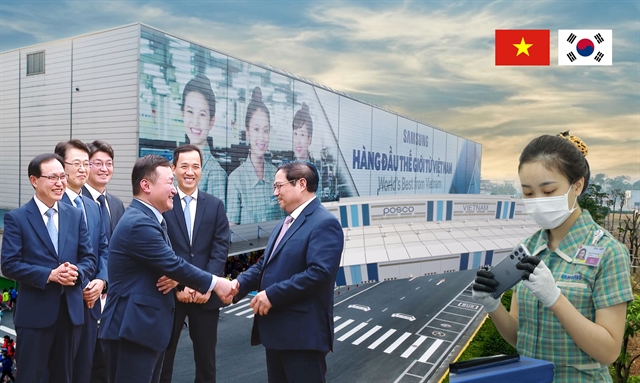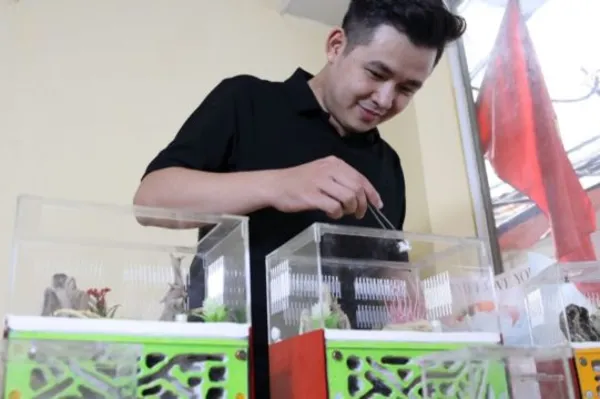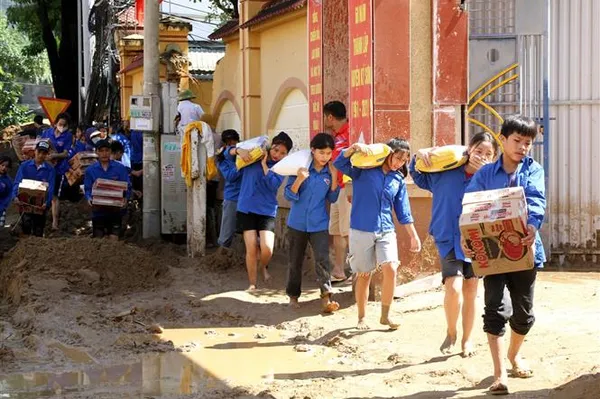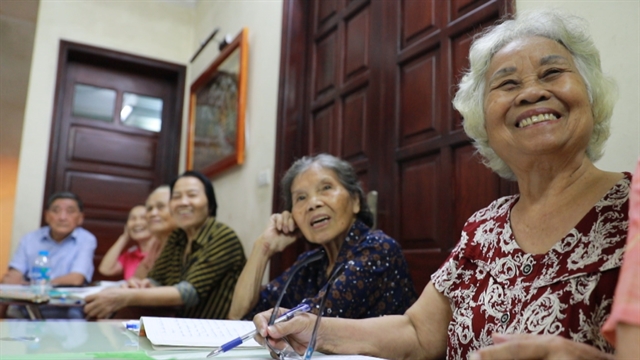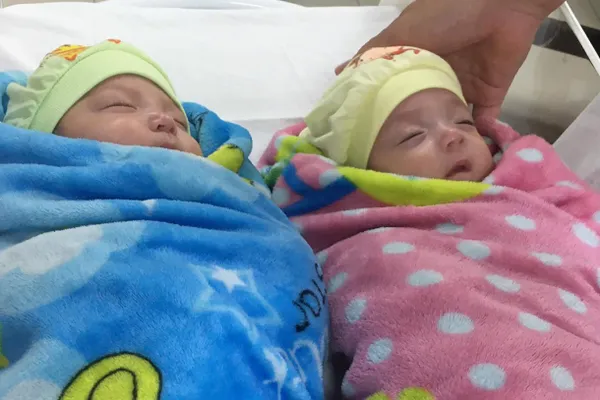
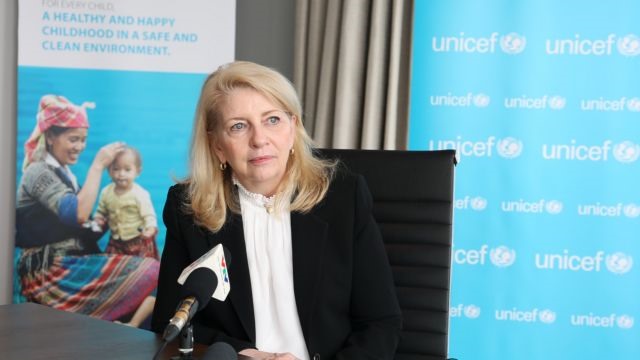 |
UNICEF's Executive Director Catherine Russell
Like all countries, Việt Nam is still grappling with the far-reaching socio-economic impacts of the COVID-19 pandemic, and there have been significant impacts on almost all aspects of children’s lives.
UNICEF's Executive Director Catherine Russell speaks to Việt Nam News reporter Ollie Arci about the current challenges facing children and what can be done to better protect them.
How has the COVID-19 pandemic affected children and what challenges have arisen as a result?
The pandemic has been challenging for children everywhere in the world, and it's been a couple of things. One, we've seen children be set back in terms of their routine immunisations which is very concerning because we've made progress on routine immunisations over the years.
And then to see that progress stopped has been very challenging. So we're trying to catch up on that. Second, we've seen many, and this is a global issue, plunged into poverty because of COVID. And that is challenging. People were unable to work. It's been very difficult. And of course, for children, it means that their schooling was disrupted.
And that's something that is of great concern to every country. Every country is struggling to get that learning back because we've seen a real rise in the number of children who are, even at the age of 10, unable to read. Just read a simple sentence, do simple math. So that is of great concern certainly to UNICEF, but to countries as well, because children are the future of their countries.
If they're not educated, if they're not healthy, that is really damaging for the country as well.
So, COVID has been challenging. The one upside I would say of COVID here in Việt Nam is that the response was very effective and so many people were immunised. And I think that demonstrates that the government here is able to do big things, to do important things.
So we're looking to the government to do a similar sort of thing in helping children who have been left behind.
How can the Vietnamese government balance its development and growth needs with those of children and how is UNICEF placed to help in that regard?
I think what the government, and this is the case with all governments, they have to make sure that their efforts at development, at progress, don't exclude anybody. We talk a lot about inclusion. Every child needs to be included and I think when you have ethnic minorities, that can be a difficult situation where they can be in rural settings.
The government has to affirmatively make sure that these people have the resources they need to survive, that their children are nourished so that they don’t suffer from stunting. They don't suffer from severe acute malnutrition, which as I said, for anyone who hasn't seen, I would encourage you to go to the Central Highlands and see it.
It will break your heart. And I literally had a sleepless night last night because I was so heartbroken by what I saw with those families and those children. And I think that the government here can do the work and UNICEF will be a good partner in every step.
One of the biggest challenges at the moment is climate change, especially in areas like the Mekong Delta. How does that threat impact children?
It is a real, real threat for children. We did a report that said that a billion, so almost half of the children in the world are at risk of severe climate jeopardy.
And here, obviously, we are concerned. We see that and what it means is that children's basic services can be disrupted. You know, children have to be part of the effort to help communities become more resilient to what's coming down the line. We know the planet's getting hotter.
There are going to be challenges with things like floods. We see that in Pakistan. So we have to help communities and children understand what's coming and be more resilient and more able to adapt to the changes that are coming in the future.
What do you think of the efforts Việt Nam is making to help and protect children?
In some ways, children here have done quite well. Việt Nam is doing very well and I think that it, certainly in the region, it's seen as a leader and it can be seen as a leader in the world.
But there are children who are being left behind, and that is the challenge right now. We've got to make sure that these children from ethnic minorities, disabled children, children who need a little bit of extra help, are not left behind. And at UNICEF, our motto is for every child.
Every child has to be included in prosperity and development because ultimately that's what makes a strong country, that everyone can participate. Everyone is healthy, everyone is educated, and everyone is able to take part in what's happening in a good way in society. VNS
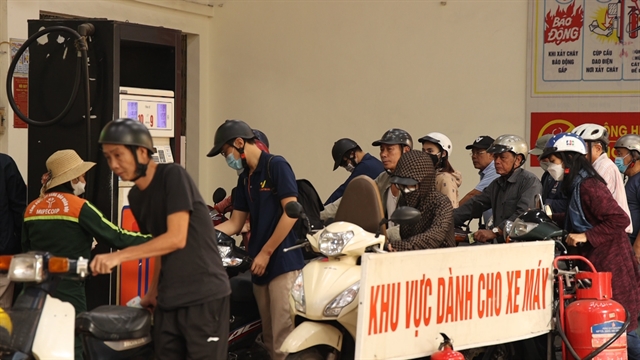

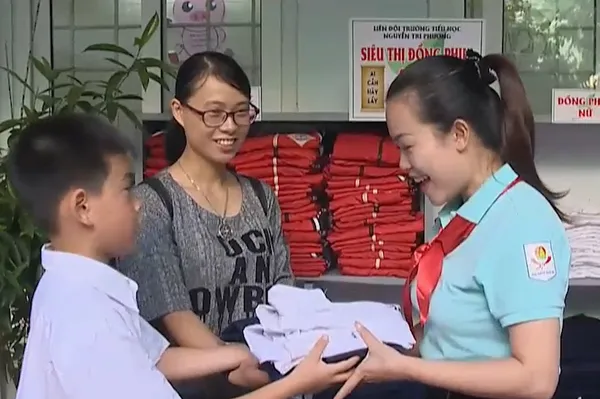
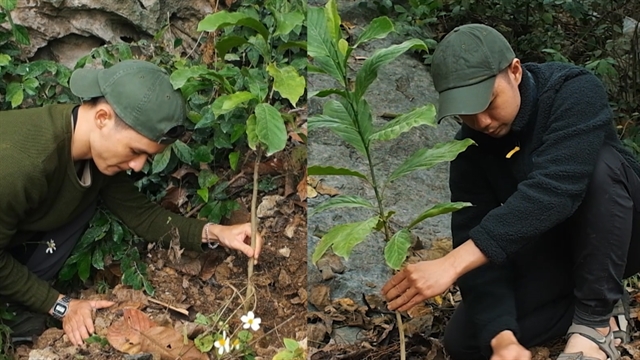

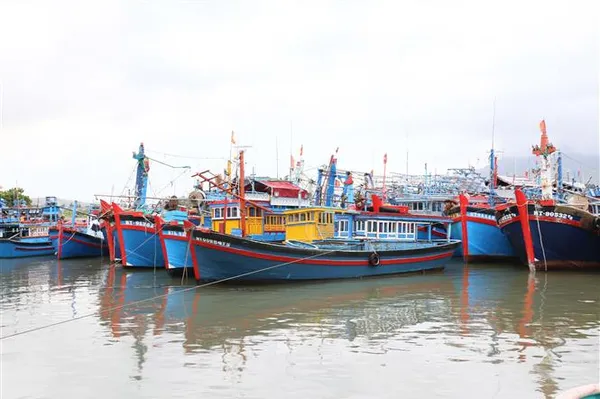
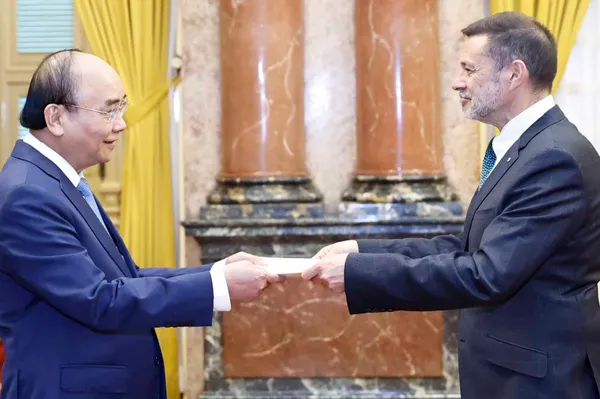
.jpg)
